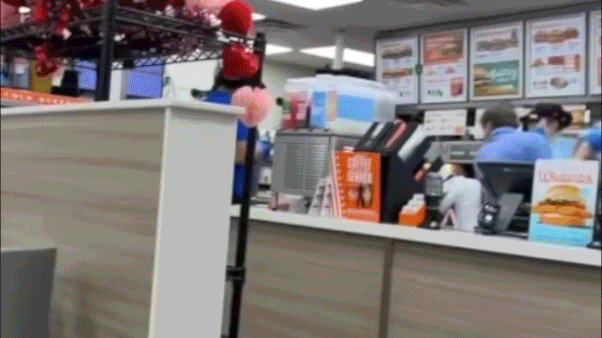FORT HOOD, Texas – The Army presented a heroism medal Monday for the man credited with being the first to try stopping the Fort Hood gunman before being slain in the rampage.
Michael Grant Cahill clutched a chair over his head and ran at the gunman soon after gunfire erupted on Nov. 5, 2009, and was fatally shot, according to several witnesses' testimony at an evidentiary hearing last fall for the suspect, Army psychiatrist Maj. Nidal Hasan.
Cahill, who was among 13 people killed and more than two dozen wounded, worked as a civilian contractor and his position made him ineligible for a military award, so getting approval for the medal took time, said Chris Haug, a Fort Hood spokesman. Cahill, 62, was a physician assistant in the medical building where soldiers returning from or preparing for deployment had to get vaccines and routine tests.
"Although we may never know why it happened, we do know that heroic actions took place that day," Brig. Gen. Joseph DiSalvo said at the ceremony Monday afternoon in presenting the Secretary of the Army Award for Valor to Joleen Cahill, his widow. "He will forever be a source of inspiration."
Kerry Cahill said her father, who was retired from the military, believed in chocolate every day, reading and "doing the most good whenever possible, and it was always possible."
"There are a lot of heroes who have emerged from that day ... and continue to emerge, and I am very proud to count my father among them," Kerry Cahill told the crowd of about 200 at Fort Hood.
The same medal was presented to the two Fort Hood police officers who stopped the shooter after a gun battle. At that ceremony on the one-year anniversary of the rampage, 50 other medals were presented to soldiers and emergency responders who helped that day, but Capt. John Gaffaney was the only victim awarded a medal posthumously. Gaffaney, who had thrown a chair at the gunman, was awarded the Soldier's Medal.
But at least one other victim received an award in the mail, although he has never been recognized publicly. About a year ago the family of Spc. Jason Dean "J.D." Hunt received the Meritorious Service Medal for his "heroically protecting several nurses while under fire during the Fort Hood shooting." The award also says Hunt saved at least one life with little regard for his safety.
Hunt was one of three young soldiers fatally shot while protecting civilian nurses hiding under a desk, according to testimony at Hasan's hearing.
"The military is not being consistent," his sister Leila Hunt Willingham told The Associated Press. "For our family, it's not about the medal and getting recognition, because J.D. wouldn't have wanted it that way. It's about finding out what our loved one did in that building that day and getting some closure."
Fort Hood officials in charge of the anniversary ceremony did not know about Hunt's medal, but it's unclear why there was a lack of communication with Hunt's chain of command who nominated him. Haug, who has not seen the medal, said it appears to be an award presented after a soldier is killed to recognize his military career — although the medal says it was specifically awarded for Hunt's actions during the Fort Hood shooting.
Hasan has been charged with 13 counts of premeditated murder and 32 counts of attempted premeditated murder. Fort Hood's commanding general, Lt. Gen. Donald Campbell, is reviewing evidence in the case and will decide whether Hasan is court-martialed and if he will face the death penalty. Two colonels previously recommended that Hasan, who was paralyzed after being shot that day and remains jailed, should be tried and face the death penalty.
U.S. Sen. Kay Bailey Hutchison and U.S. Sen. John Cornyn, both Texas Republicans, have filed a proposed law that would make the Fort Hood victims and wounded soldiers eligible for the Purple Heart, now awarded only to troops attacked in a combat zone. Under the bill, the Fort Hood rampage is deemed to have happened in a combat zone and at the hands "of a terrorist and an enemy of the United States."









































